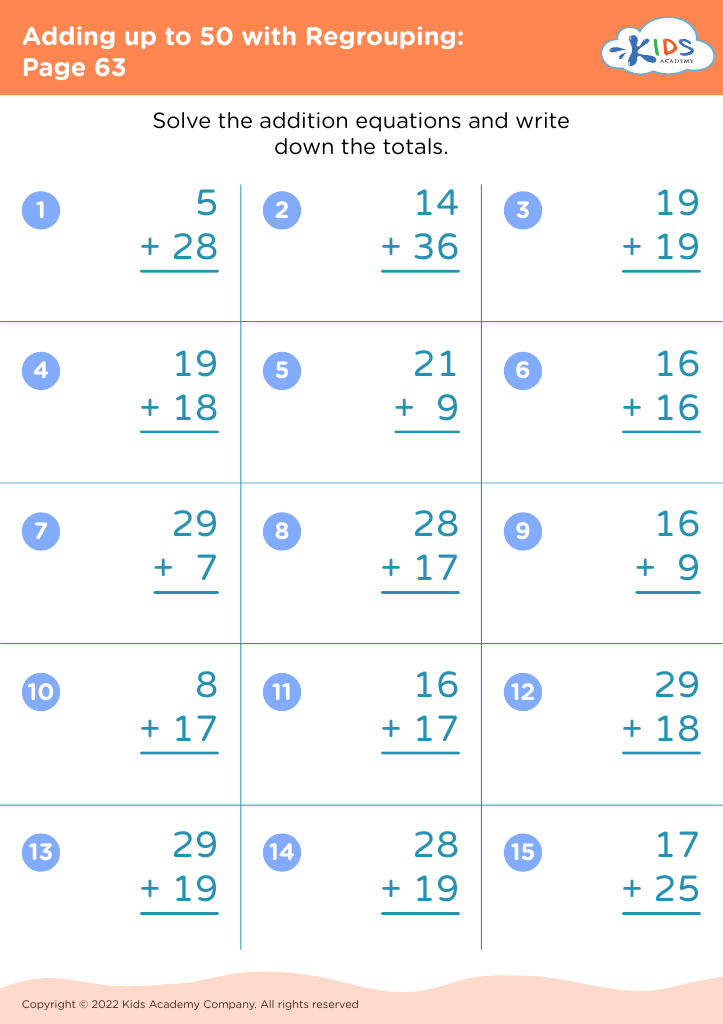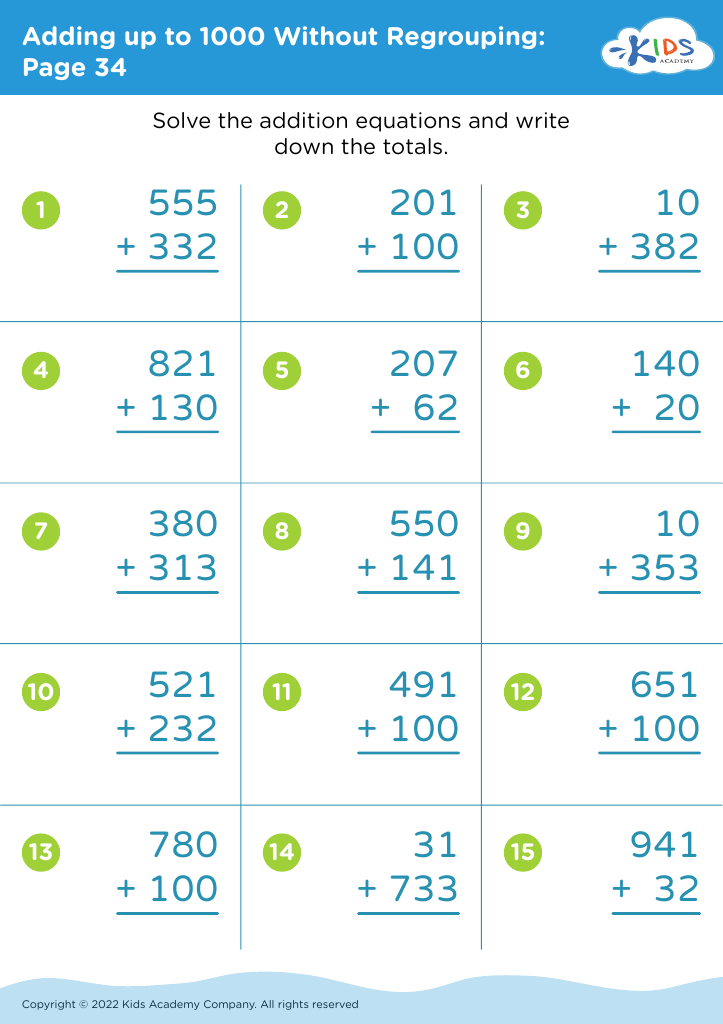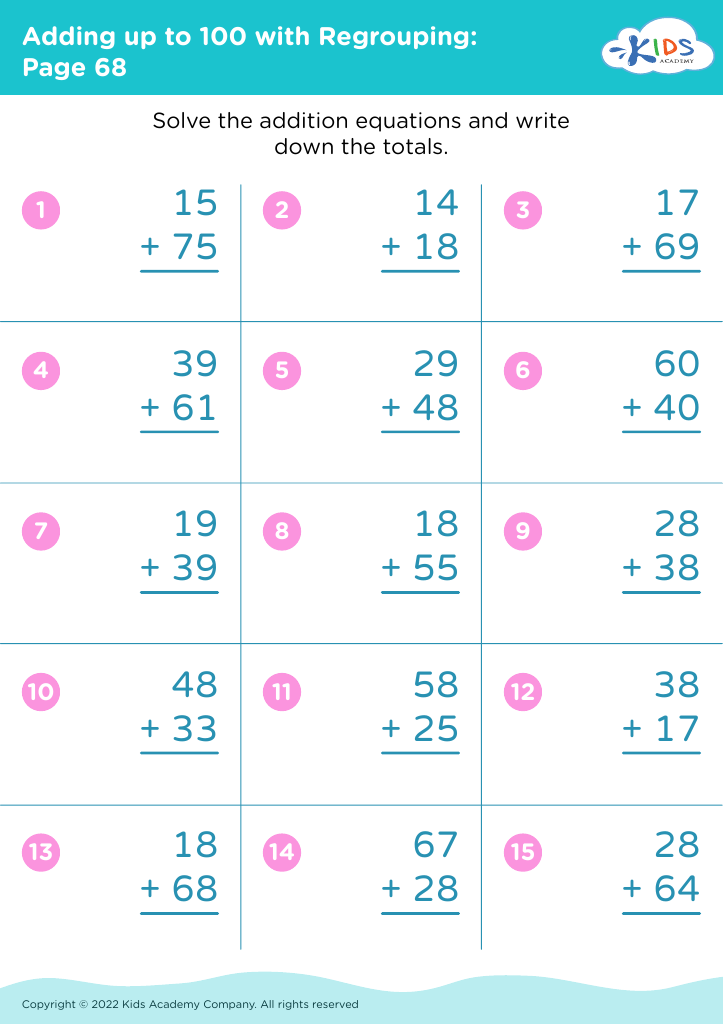Understand subtraction Addition & Subtraction Worksheets for Ages 5-8
6 filtered results
-
From - To
Welcome to our "Understand Subtraction" worksheets designed specifically for children aged 5-8! Engage your young learners with fun, interactive activities that simplify subtraction concepts. Our easy-to-follow worksheets provide clear examples and visual aids, making it enjoyable for kids to grasp and practice subtraction alongside addition. Perfect for homeschooling or classroom use, these resources support school curricula and help reinforce essential math skills. Empower your child's mathematical journey through adaptable worksheets that cater to various learning styles, ensuring foundational skills for future success. Discover the joy of learning subtraction with Kids Academy today! Suited for early grade students eager to excel in math!
Understanding addition and subtraction is foundational for children aged 5-8, laying the groundwork for their entire mathematical education. Parents and teachers should care deeply about this foundational skill because numeracy is not just about numbers; it helps develop critical thinking, problem-solving, and analytical skills. Mastery of these concepts fosters confidence in children, encouraging them to tackle more complex mathematics in the future.
At this age, children can relate math to real-life situations, enhancing their engagement and relevance. For instance, when children learn subtraction through practical scenarios, such as sharing snacks or counting toys, they begin to see math as an essential life skill rather than an abstract concept.
Furthermore, strong addition and subtraction skills set the stage for understanding higher-level math concepts, such as multiplication, division, and fractions. It also links closely with literacy; for example, problem-solving nurtures comprehension abilities as children analyze and devise strategies to arrive at solutions.
Ultimately, prioritizing mastery of these fundamental concepts ensures children are better prepared for academic challenges ahead, fostering a lifelong love of learning and numeracy. Investing time and effort now in teaching these essential skills yields lasting benefits for children’s academic journeys.

























